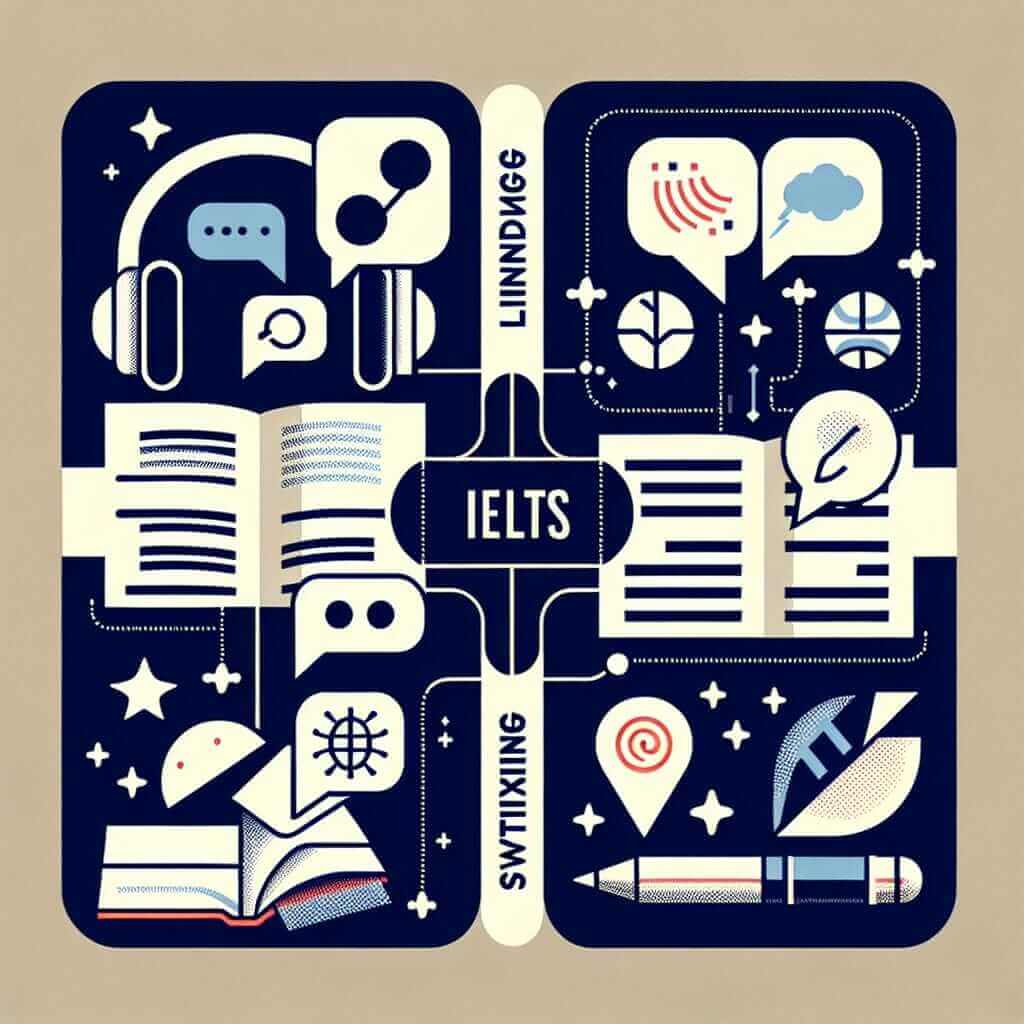As an IELTS instructor with over 20 years of experience, I often get asked about the suitability of the IELTS exam for young learners. It’s a valid question, as the IELTS is a high-stakes exam primarily designed for adults seeking higher education or professional opportunities.
Understanding the IELTS and Its Demands
The International English Language Testing System (IELTS) assesses English language proficiency across four skills: listening, reading, writing, and speaking. It’s important to understand that the IELTS tests a candidate’s ability to understand and use English at a fairly sophisticated level.
While there isn’t a specific age restriction for the IELTS, the content and format are geared towards mature learners who possess a substantial vocabulary, understanding of complex grammar structures, and the ability to express opinions and analyze information critically.
 IELTS Exam Format
IELTS Exam Format
Considerations for Children Taking the IELTS
1. Maturity Level and Academic Readiness
The IELTS requires a high level of focus, stamina, and critical thinking. Young learners may find the exam format and content overwhelming, even if they have good English skills for their age. It’s crucial to consider the child’s individual maturity level and academic readiness before deciding to have them take the IELTS.
2. Purpose of Taking the IELTS
Why does the child need to take the IELTS? Is it for immigration purposes, secondary school admission, or something else? Often, other English proficiency tests specifically designed for younger learners, such as the Cambridge English: Young Learners exams (YLE), might be more appropriate and less stressful.
3. Potential Stress and Pressure
The pressure associated with high-stakes exams like the IELTS can be significant, even for adults. Putting this kind of pressure on a child can be counterproductive and might negatively impact their motivation to learn English.
Alternatives to the IELTS for Children
Several excellent English language proficiency tests are specifically designed for young learners:
- Cambridge English: Young Learners (YLE): This series of fun and engaging tests is designed for children aged 7-12.
- TOEFL Primary and TOEFL Junior: These tests assess the English skills of children aged 8 and above, focusing on everyday English use.
Conclusion
While there’s no age limit for the IELTS, it’s generally not recommended for young learners. The exam’s complexity and high-stakes nature might not be suitable for their developmental stage. Instead, consider English language tests designed for children, which provide a more age-appropriate and less stressful assessment experience. Remember, fostering a love for learning English should always be the priority.


